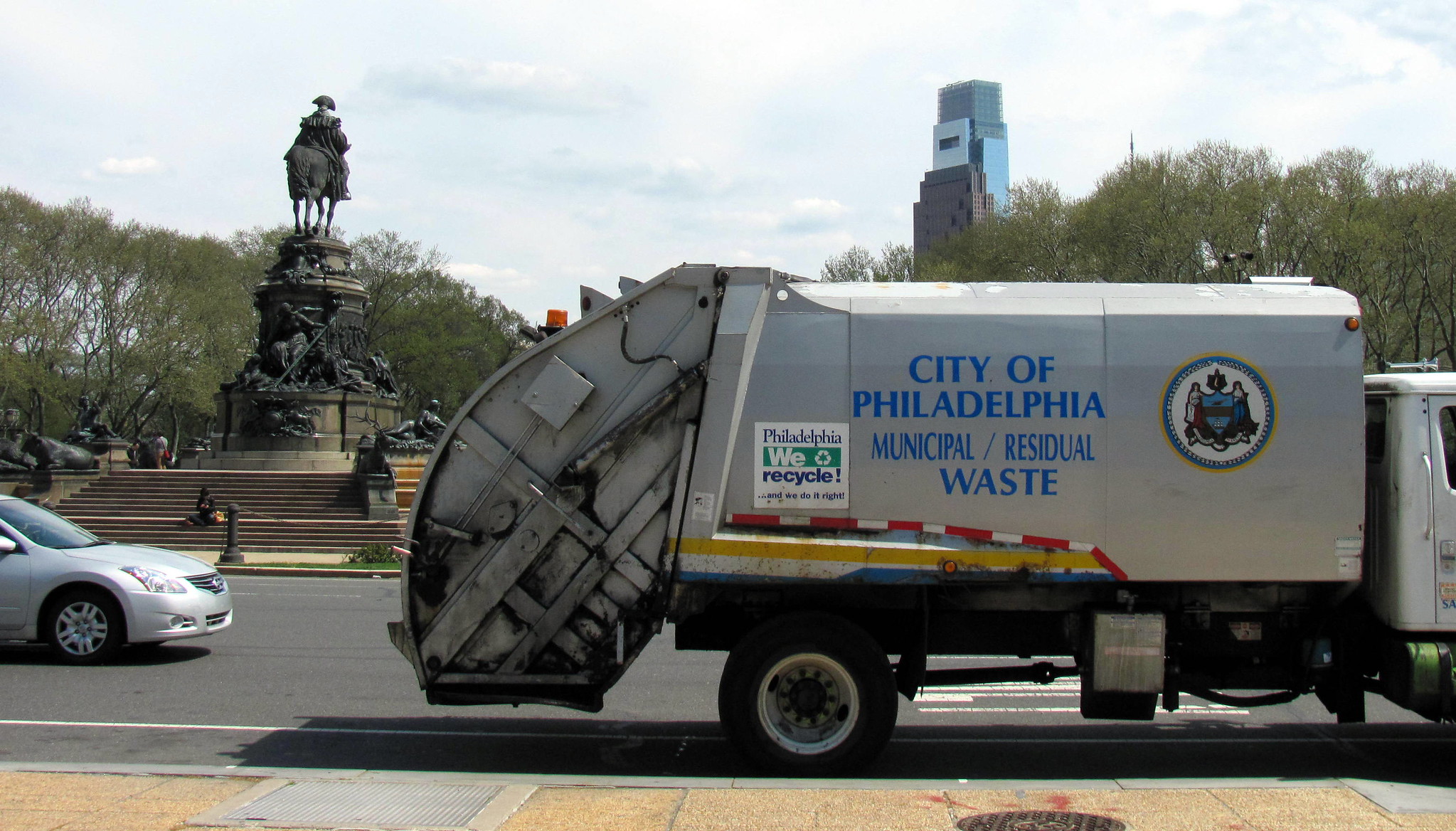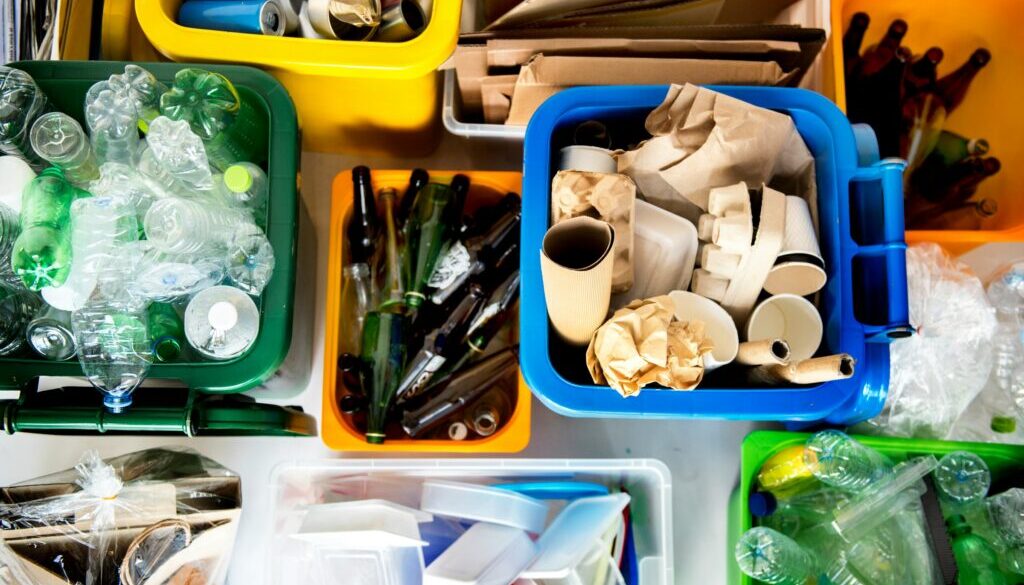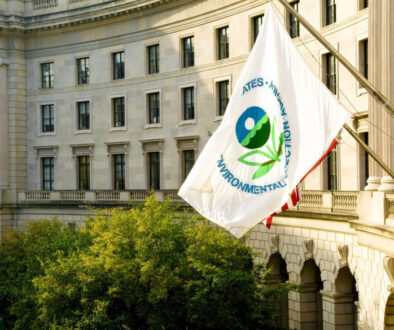Philadelphia takes on companies over alleged deceptive plastic recycling claims
Listen to the audio version of this article (generated by AI).
When Philadelphia filed a lawsuit last month alleging two prominent companies were engaged in a “coordinated campaign of deception” regarding the recyclability of their plastic film products, the city joined a growing group of state and local governments hoping litigation can help stem a rising tide of plastic waste.
Public officials in New York, Minnesota, Connecticut, California, Baltimore and Los Angeles have over the last three years lodged complaints against several companies that act as powerful links in the chain of plastic production, including ExxonMobil, PepsiCo, Coca-Cola, Walmart and Reynolds Consumer Products.
The lawsuits are each distinct, but they all allege the defendants misled the public about the efficacy of recycling in order to continue profiting off the production and sale of plastic. California accused ExxonMobil of encouraging the excessive use of plastic, contributing to the state’s billion-dollar annual cost for plastic waste management. New York, meanwhile, alleged that PepsiCo’s single-use plastics pollute the Buffalo River, contaminating drinking water and harming wildlife.
Roughly 400 million tons of plastic are produced worldwide each year, according to the United Nations, and only about 10% gets recycled. Plastic pollution poses a threat to human and animal health as well as vital ecosystems, the UN states.
Philadelphia’s complaint, filed Sept. 24 against Bimbo Bakeries and SC Johnson, claims that the companies misled consumers by suggesting their plastic film products — bread bags and Ziploc, respectively — could be recycled.
“They have capitalized on this confusion to take advantage of consumers, and we in Philadelphia want this to stop,” said Cherriel Gentles, a senior attorney for the city. “They cannot operate in this manner to continue to fleece consumers.”
Nationwide, the litigation has yet to find much success. A judge tossed out New York’s lawsuit for “seek[ing] to impose punishment while searching for a crime.” ExxonMobil has countersued California Attorney General Rob Bonta over his claim that “the company has propped up sham solutions.” And a judge dismissed key elements in Baltimore’s suit against PepsiCo, Coca-Cola and Frito-Lay because the city failed to demonstrate harm to consumers or itself.
Still, environmental advocates and legal experts have high hopes for Philadelphia’s lawsuit and said it may offer a blueprint for how municipalities and states can directly link plastic producers to the harms caused by plastic waste and pollution.
“They have capitalized on this confusion to take advantage of consumers, and we in Philadelphia want this to stop.” – Cherriel Gentles, senior attorney, Philadelphia
The complaint takes aim at Bimbo and SC Johnson’s marketing for steering consumers toward designated drop-off boxes found at various retailers where their plastic film products could purportedly be recycled. But those boxes are nothing more than “trash cans in disguise,” the complaint alleges, citing a range of recent reporting that has revealed such plastics rarely get recycled.
It also describes how that alleged deception stymies the city’s effort to recycle legitimate materials like paper, cardboard and aluminum. Because consumers have been led to believe plastic film is recyclable, the complaint says, they place it in the city’s curbside bins, leaving recycling professionals with “a daunting and expensive task.”
First, they must tangle with plastic film that jams machinery, raising operating costs and endangering workers. Second, they must mitigate the contamination caused by plastic film — the primary contaminant in the recycling system, in part because of its use for food storage — to have any hope the city’s materials can be sold and recycled.
By detailing the direct impact of the companies’ alleged deception on the municipal recycling system, the lawsuit aims to accomplish something its predecessors have struggled to manage, according to Jan Dell, the founder of The Last Beach Cleanup, a nonprofit focused on ending plastic pollution. It clarifies the harm to both residents and the city in a way that has often seemed more nebulous in other settings, Dell said.
“I hope this is a model,” she said.
Philadelphia’s lawsuit “sews together what’s been happening over the past five years,” Dell said, by confronting what she calls “the store drop-off myth.” Multiple reports have used trackers to show that bags placed in drop-off containers rarely make it anywhere but the landfill.

As Philadelphia’s complaint outlines, the defendants’ packaging uses standardized How2Recycle labeling to encourage consumers to deliver their plastic film to store drop-off sites, despite the fact that low-density polyethylene film — identified by the #4 resin ID code inside the familiar “chasing arrows” symbol — is not recyclable in Philadelphia, nor “almost anywhere in the United States.”
Only 8% of Americans understand that a resin ID code does not guarantee a product’s recyclability, the lawsuit states, and 91% believe that as long as a product is “technically recyclable” they can place it in their curbside bins to recycle it. The result is consumers going out of their way to place bags in store drop-off containers, or putting them in curbside bins despite the fact they cannot actually be recycled.
The defendants are aware that their products are only “theoretically recyclable,” the complaint alleges, citing a comment from Pamela Oksiuta, SC Johnson’s senior director of global sustainability, who said at a 2018 industry event that there is no significant end market for reprocessed plastic film because “it is perceived as inefficient and unprofitable.”
The company’s CEO recently told the US Senate Committee on Environment and Public Works that the cost of recycled plastic is “significantly higher” than virgin plastic, stacking the deck in favor of producing new plastic rather than recycling.
“It’s an arduous process to even try to recycle this stuff,” said Logan Welde, a senior attorney with the environmental nonprofit Clean Air Council who helped get Philadelphia to pass a plastic bag ban in 2019. “No company is going to do it when there’s no money in it. It’s a sham.”
Given the various obstacles, just 0.2% of Ziploc bags are collected for recycling, SC Johnson’s Oksiuta acknowledged at the 2018 event. The company even identified plastic film as nonrecyclable in a 2024 Instagram post, despite continuing to suggest otherwise on its packaging.
Neither Bimbo nor SC Johnson responded to requests for comment on the litigation and neither has yet filed a response in the Philadelphia Court of Common Pleas. A representative for the American Chemistry Council, a plastic industry association, declined to comment on the spate of lawsuits against plastic producers.
“It’s an arduous process to even try to recycle this stuff.” – Logan Welde, Clean Air Council
Philadelphia’s lawsuit is the first under a consumer protection ordinance enacted in June 2024 that deems illegal any misrepresentation about the characteristics of a good or service. Along with seeking monetary damages, the complaint seeks a declaratory judgment finding the defendants’ marketing to be unlawful, as well as an injunction ordering it to be revised to address any public misunderstanding. The city is also asking for the disgorgement of any profits related to the alleged deceptive marketing.
Gentles, the city attorney, said the lack of accountability at the national level puts the onus on Philadelphia and others to protect their residents.
“There is no enforcement at the national level,” Gentles said. “If they’re not enforcing the laws, then municipalities and cities have to step up.”
Peter Blair, a policy and advocacy director at Just Zero, a nonprofit working toward zero-waste solutions, said previous plastic pollution lawsuits have focused on concerns about consumer choice or far-reaching claims that often lead to a “dead end” in the courts.
“A lot of us very much want the plastic lawsuits to follow the same direction that we saw with tobacco lawsuits or the opiate lawsuits,” Blair said. “We’re dealing with a very different type of problem, though, where the harms aren’t as direct. This [complaint] does a very good job of getting around that legal hurdle.”
The timing of the complaint is notable, Blair said. An eight-day strike by Philadelphia’s sanitation workers this July left waste piling up around the city, shining a spotlight on what happens when the waste management system is broken.
“In many ways, this lawsuit is pointing out that it is broken behind the curtain as well,” Blair said. “It’s just hidden from you … The reason you’re paying so much [for recycling] is because these companies are lying. You’re trying to do the right thing and it’s gumming up the works.”
Gentles said this lawsuit is “absolutely just the start” of Philadelphia’s effort to address the plastic waste crisis and its impact on residents and municipal operations.
“People want to do good,” she said. “They want to contribute to making the environment a better place and they really do try, but it’s so confusing. We’re trying to cut through some of that.”
(Featured image: Curated Lifestyle/Unsplash+ )




